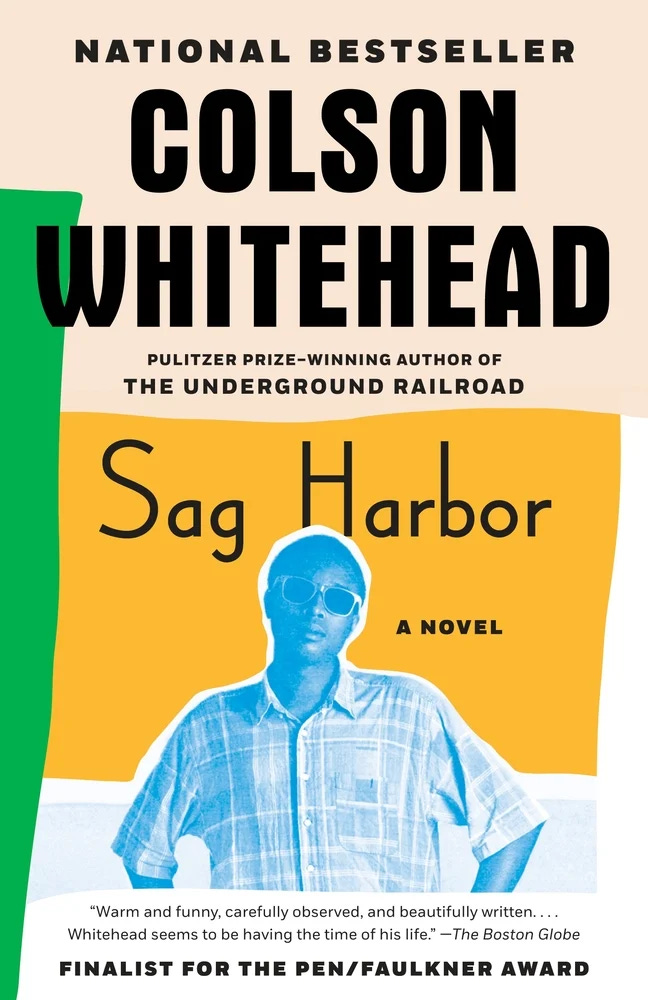Rules of Writing to Live By 📜 | BookGo Fridays #18 ✨
Plus: Three of the best books to read on the beach this summer | Alfred Lord Tenysson’s “Ulysses” | George Orwell’s “Politics and the English Language” | And the BookBar Book Club continues 🍻
Hello and welcome to another round-up of everything happening in the world of BookGo and beyond. As ever, we’ve got new articles, guides, and round-ups of recommendations to read this week as summer is well and truly in full swing.
Our regular poem of the week comes from the Victorian Poet Laureate Alfred Lord Tennyson. For Tom, Tennyson’s invocation of the aging and languishing king of Ithaca, Ulysses, has resonances with the self-obsessed leaders of today.
Next up, we continue our exploration of the best books to read this summer with a follow-up foray into more fantastic beach reads. Whether you’re about to head off to sandier shores or still dreaming off a holiday that feels far away, these beach reads are the perfect way to relax into summer.
Reminding us that writing, literature, and language can’t always be (and perhaps is never entirely) all about escapism, Michael returns to the enduringly important words of George Orwell in a look at some “Rules of Writing to Live By.” George Orwell’s timeless advice about how to write is also timeless advice about how to live, and it has just as much relevance for the America of today as it did for the war-ravished Europe of 1946.
And last but not least, BookGo’s online book club continues with our month-long read of F. Scott Fitzgerald’s The Great Gatsby, another book that seems as relevant now as it did when it was published exactly 100 years ago.
Before you dig into all that, though, a quick announcement from us here at BookGo!
FYI: Bi-Monthly BookGo over Summer 😎
As all of our readers and subscribers will know, it’s been a busy few months for BookGo and YourBook. We’ve got the launch of a medical thriller novel Squawk 7700, and you can read the prologue and the first chapter for free on our website right now.
We’ve also got three more books in the last stages of development (more on all three very soon)! 🤩
As we focus on these big launches, you might be hearing from us a bit less frequently over the summer, but we’ll still be in your inboxes with bi-monthly updates, teasers, and interviews with our authors.
In the meantime, please do share our work with anyone you know who loves writing and reading – we’re always looking to connect with new book souls – and enjoy everything we’ve got in store for you this week! 💛
Table of Contents
Poem of the Week: Alfred Lord Tenysson’s “Ulysses” by Tomas Elliott
Article: “Three of the Best Beachable Books” by Nancy Merritt Bell
Article: “Rules of Writing to Live By” by Michael McKinley
BookBar Continues: The Great Gatsby
Poem of the Week: Alfred Lord Tennyson’s “Ulysses”
By Tom Elliott
I don’t know why, but I always find myself drawn back to the great epic adventures of the ancient world in the summer months. Perhaps it’s simply because, once the sun finally starts to spread its warmth and the days start to lengthen towards their apex, my mind can better imagine that Mediterranean climate that fostered the cauldron of Western civilization. I come in mind of the great journeys of the Argonauts and the Achaeans across the sea to Troy. And I wonder if I too harbor that desire for glory and adventure that we associate with an age of heroes in a world long ago.
But I also remember the sadness of such ideas of glory and adventure, and that’s what I recall whenever I re-read Alfred Lord Tennyson’s poetic depiction of the aged king Ulysses (in Greek Odysseus), sat in his kingdom of Ithaca many years after his return from the Trojan War, restlessly anticipating a new adventure.
“Ulysses”
By Alfred Lord Tennyson (1842)
It little profits that an idle king, By this still hearth, among these barren crags, Match'd with an aged wife, I mete and dole Unequal laws unto a savage race, That hoard, and sleep, and feed, and know not me. I cannot rest from travel: I will drink Life to the lees: All times I have enjoy'd Greatly, have suffer'd greatly, both with those That loved me, and alone, on shore, and when Thro' scudding drifts the rainy Hyades Vext the dim sea: I am become a name; For always roaming with a hungry heart Much have I seen and known; cities of men And manners, climates, councils, governments, Myself not least, but honour'd of them all; And drunk delight of battle with my peers, Far on the ringing plains of windy Troy. I am a part of all that I have met; Yet all experience is an arch wherethro' Gleams that untravell'd world whose margin fades For ever and forever when I move. How dull it is to pause, to make an end, To rust unburnish'd, not to shine in use! As tho' to breathe were life! Life piled on life Were all too little, and of one to me Little remains: but every hour is saved From that eternal silence, something more, A bringer of new things; and vile it were For some three suns to store and hoard myself, And this gray spirit yearning in desire To follow knowledge like a sinking star, Beyond the utmost bound of human thought. This is my son, mine own Telemachus, To whom I leave the sceptre and the isle,— Well-loved of me, discerning to fulfil This labour, by slow prudence to make mild A rugged people, and thro' soft degrees Subdue them to the useful and the good. Most blameless is he, centred in the sphere Of common duties, decent not to fail In offices of tenderness, and pay Meet adoration to my household gods, When I am gone. He works his work, I mine. There lies the port; the vessel puffs her sail: There gloom the dark, broad seas. My mariners, Souls that have toil'd, and wrought, and thought with me— That ever with a frolic welcome took The thunder and the sunshine, and opposed Free hearts, free foreheads—you and I are old; Old age hath yet his honour and his toil; Death closes all: but something ere the end, Some work of noble note, may yet be done, Not unbecoming men that strove with Gods. The lights begin to twinkle from the rocks: The long day wanes: the slow moon climbs: the deep Moans round with many voices. Come, my friends, ’Tis not too late to seek a newer world. Push off, and sitting well in order smite The sounding furrows; for my purpose holds To sail beyond the sunset, and the baths Of all the western stars, until I die. It may be that the gulfs will wash us down: It may be we shall touch the Happy Isles, And see the great Achilles, whom we knew. Tho' much is taken, much abides; and tho' We are not now that strength which in old days Moved earth and heaven, that which we are, we are; One equal temper of heroic hearts, Made weak by time and fate, but strong in will To strive, to seek, to find, and not to yield.
The picture we get of this aging hero in Tenysson’s poem is one of a great adventurer, yes, but an adventurer who, for all that, treats his family and his people with snivelling indifference. His wife Penelope, the one who faithfully waited for him for twenty years while he traveled to Troy, is described simply as “aged,” and he dismisses his countrymen as nothing more than a “savage race.” His son, meanwhile, he abandons with careless indifference as he sets out on another journey: “When I am gone. He works his work, I mine.”
Tennyson seems to identify this as the great tragedy of “heroic hearts,” of which Ulysses is his prime example. While these figures of vaulting ambition dream only of what is beyond the horizon and seek to “sail beyond the sunset… Of all the western stars,” that striving comes at the cost of all those whom they leave behind and whom it is their responsibility to love and care for and support: their family, their home, their people. Ulysses calls himself an “idle king” who must now “rust unburnish’d,” but he should be far from idle. There are all the matters of state to attend to, the “common duties” that he passes off upon his son while he goes questing for the stars, in search of further glory and renown that can be found, ultimately, only when he joins the other so-called heroes in renown through death.
Perhaps we might draw parallels, then, with the so-called kings of today—aging and languishing yet certain that they, among all the people they have met, are “honour’d of them all.” They promise to deliver a “newer world,” and they call that “the work of noble note.” But perhaps what is “noble” is not always that which is worthy of “note.” Perhaps what is noble is the small tasks, the “common duties” that “an idle king” abandons—the care of citizens, the management of a healthy government—precisely because that “little profits” him.
Three of the Best Beachable Books 🏖️😍
By Nancy Merritt Bell
Is a “classic” beach book a contradiction in terms? Is it “enduring fluff’? It may be so, for there does seem to be a transient, ephemeral quality to summer books. They are typically escapist—as publishers’ PR would have us think—and don’t really download into the brain’s memory file along with the great “Literary Canon.” After all, who remembers the summer of 2023’s lovely read The Daydreams by Laura Hankin? Mes amis, où sont les neiges d’antan?
“Mes amis, où sont les neiges d'antan?”
~ François Villon, La Ballade des dames du temps jadis (1469)
But on the rare occasion a summer sizzler hits the bestseller shelf and stays there longer than a week, or a year, or even decades, there is much to celebrate. What we have here is a magical literary oxymoron: we have “eternal pulp” as in Valley of the Dolls.
My first beach book was Jaqueline Susann’s best-selling 1966 novel, a debut novel inspired by her acting career, and in it she checked into the dark side of the nascent Feminist Movement’s Second Wave. She totally nailed the Sixties excess of sex and success. The book will be 60 years old and has become a cultural touchstone. And it remains as one of the all-time bestsellers, though it famously had help when it was first published and Susann herself bought all the copies. As a result, the book “sold out” which caught the public’s attention, and then the book really did sell out. Then and now the book’s appeal is its focus on three young women who are real Second Wave characters, determined to “make it on their own terms”: there is Anne, a small-town girl hoping for the big times on Broadway, and Nelly, a lifelong vaudeville performer longing for stardom, and Jennifer, a blond bombshell in the style of Marilyn Monroe.
Not only does Susann capture the culture of the times, she does it with all her acting gifts: the drama is high, fueled by tragedy and drugs, and the dialogue zips along from zinger to zinger, and then cuts as deeply as a newly sharpened Caladia Chef Knife (like when Nelly, who is losing a grip on herself, screams her name out in a dark alley). The issues ring out almost as loudly today in the lives of heterosexual womanhood as we grapple with body image, gender roles, sexism, agism and misogyny—still. The men that populate the book are all toxic types, from the merely tainted to the powerfully poisoned. Put this one on the top of the beach book pile if you have never read it.
My next beach classic offering is Rebecca, the 1938 Gothic novel by Daphne du Maurier. Like Susann, du Maurier brings a lot of personal life and wisdom to her novel. As for her own background, her family--from her father, the actor-manager Sir Gerald du Maurier, and actress mom Muriel Beaumont, to her own husband, Lord Browning –reach across British theater and rise right up the English class system to the monarchy. Rebecca is set in the land of lords and ladies and in the mansions of the West Country. The one in this book is called Manderley, and it is the first thing you meet owing to the novel’s haunting first line: “Last night, I dreamt I went to Manderley again…” It is here that a lowly young ‘companion’ becomes the wife of a very wealthy widower, before discovering that both he and his mansion—and its massive staff--are haunted by the memory of his late first wife, the title character, Rebecca.
It is a powerful psychological haunting and the keeper of the ghost is one of the most chilling—manipulative and undermining—female characters of all time, Mrs. Danvers. The new wife—never named, but we hear about her predecessor ‘Rebecca’ all the time—is terrifyingly lacking in defenses and a sense of self, so much so she becomes possessed by Rebecca’s memory and by Mrs. Danvers. Though Gothic in its elements, Rebecca is a slow-chill psychological thriller and du Maurier does it by playing with the WASPy way those people have of not speaking about hard truths. And so all kinds of awful secrets about Rebecca are spun out in the silence, while the truth remains hidden until it sets fire in the end.
Colson Whitehead’s 2010 novel, Sag Harbor, upends the whole beach book idea. Though it even names its beaches and beach town, this is a very serious novel about identity and race. The book is set in summertime in Sag Harbor, the town on the inner harbor of Long Island, which New Yorkers both love and hate, being an escape for the ultra-rich–to hide far away from the rest of us. What Whitehead does here is take the youthful phenomena that occurs while away to camp, or to Europe, or even Sag Harbor, when a teen becomes someone else over the summer, be it Cool Guy, or Hot Mess, or Drama Queen, or anything that is other than the dreary, ordinary teenage self.
The plot follows fifteen-year-old Benji and his brother Reggie, two monied teens vacationing in—you got it—Sag Harbor. While they roll through summer they meet up with friends and classmates from their posh Manhattan prep school. With parents back in New York at work, making even more money, Benji—teeth still wired together with braces—aches to be cool. And like Susann’s book and also du Maurier’s, there is a lot of personal history here. Whitehead went to a wealthy prep school and the book exposes Benji’s and Reggie’s struggles to define themselves as cool Black teenagers in a very very white world.
As for a few other beach classics, I also recommend Mario Puzo’s The Godfather. If you’ve never read it and only seen the movies, it is a stunning book. After all Mario Puzo is first and foremost a novelist. And since you are headed to the beach, pick up Nevil Shute’s On the Beach. Written in 1957, in the shadow of World War II and in the chill of the Cold War, the book itself is set in the aftermath of a nuclear World War III which ravaged most of the globe.
— Nancy
Rules of Writing to Live by
- By Michael McKinley
In 1946, George Orwell published an essay entitled “Politics and the English Language.” In it, Orwell looks at how the “ugly and inaccurate” written English of his day affected political discourse and outcome. And at the end of the essay, Orwell helps out writers everywhere by listing six rules of writing to live by:
Never use a metaphor, simile or other figure of speech which you are used to seeing in print.
Never use a long word where a short one will do.
If it is possible to cut a word out, always cut it out.
Never use the passive where you can use the active.
Never use a foreign phrase, a scientific word or a jargon word if you can think of an everyday English equivalent.
Break any of these rules sooner than say anything barbarous.
It’s worth reading Orwell’s essay again today, and invoking his sensibility when looking at the lazy, sloppy, inaccurate, or maybe frightened way in which the English language, especially here in the United States, conveys reality.
So, as Orwell had his six rules, I have my list of three words or expressions which should be locked into a dark vault and left there.
Strongman: this refers to a tyrant, a fascist dictator, an autocrat, or any other so-called leader who uses force to keep power. It does not indicate any kind of strength except that of a bully. So, it’s time to say goodbye to a word that can so easily be misinterpreted, and to use the most accurate term to describe politicians who subjugate their people with force and that would be “dictator”.
Double down: this phrase comes from the card game blackjack. In blackjack, a player can "double down" by doubling their initial bet after receiving the first two cards. They get one more card face down. In other words, they wager more money on a card that they cannot see. It’s risky, but a player can win more money. Today, it is used in a way that has nothing to do with blackjack. It today means when a lie or insult or deeply offensive statement was followed by another of its ilk to emphasize the first one, then it is called a case of “doubling down”. It needs to disappear, because, unlike the card game, it risks the truth.
Security forces: this term is one of the worst, and was a favorite of former British Prime Minister Margaret Thatcher who used it to describe whatever her government did to Irish opponents. As the New York Times put it in 1985:
'SHOOT TO KILL' POLICY IN ULSTER? THE DEBATE RAGES
April 12, 1985
The shootings have fueled a debate among politicians of all parties, churchmen, the British authorities, the relatives and friends of those shot and supporters and opponents of the I.R.A. over whether the security forces in Northern Ireland are using ''shoot to kill'' tactics against suspected terrorists.
You can see the problem right there. Assassins who happen to be working for the government are called “security forces”. Any police or military group on the side of the government, allegedly keeping us all safe, are described as “security forces”. I will not list the examples of how this is not true as this is a newsletter, and not a three volume book. If you really want to get a sense of how troubling these two words are when describing armies acting in the worst possible way, just call the Nazi SS and Gestapo “security forces” and the idea should be clear.
All of this matters because if we use words or expressions in our writing that do not mean what they are supposed to mean, words or expressions that have been corrupted by our lazy or complicit media (you choose), then we have “lost the plot” as it were and devalued all that we have written.
Orwell’s essay argued for conveying your ideas as clearly and succinctly as you can, with the proviso that you can break any of his rules if you need to. Same here with the terms above: use them only if they are true. A male who can deadlift 400 pounds is a strongman. Someone risking money on a blackjack bet has doubled down. And the uniformed people keeping us safe at a sporting match are indeed keeping things secure. But after that, as Orwell would probably not say, all bets are off.
BookBar Continues: The Great Gatsby
Our ongoing exploration of F. Scott Fitzgerald’s The Great Gatsby continues throughout June. Last week we asked:
What do you think of Nick? What are his values or personality? Does he influence the novel? Is he reliable?
This is an interactive book club, so if you’ve got a favorite line from the opening of The Great Gatsby or if you remember reading it at school – let us know on Swell. We’d love to hear from you too!
That’s all for this week. We’re so grateful to everyone supporting us on this BookGo journey. Let us know what you’re reading over the summer, and don’t forget to like and share if you know someone who might like what we’re doing!
Much love from the BookGo Team 💖















